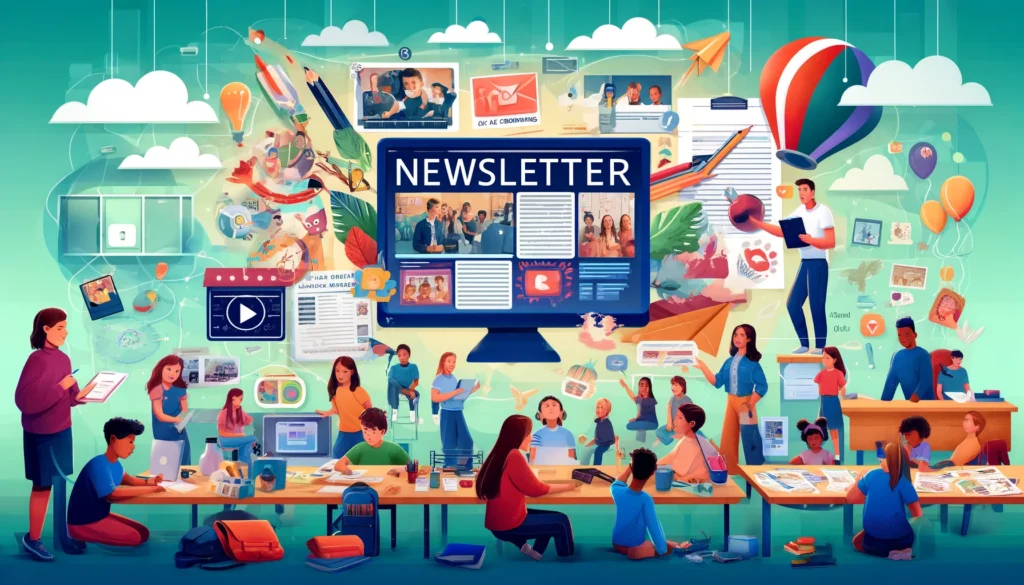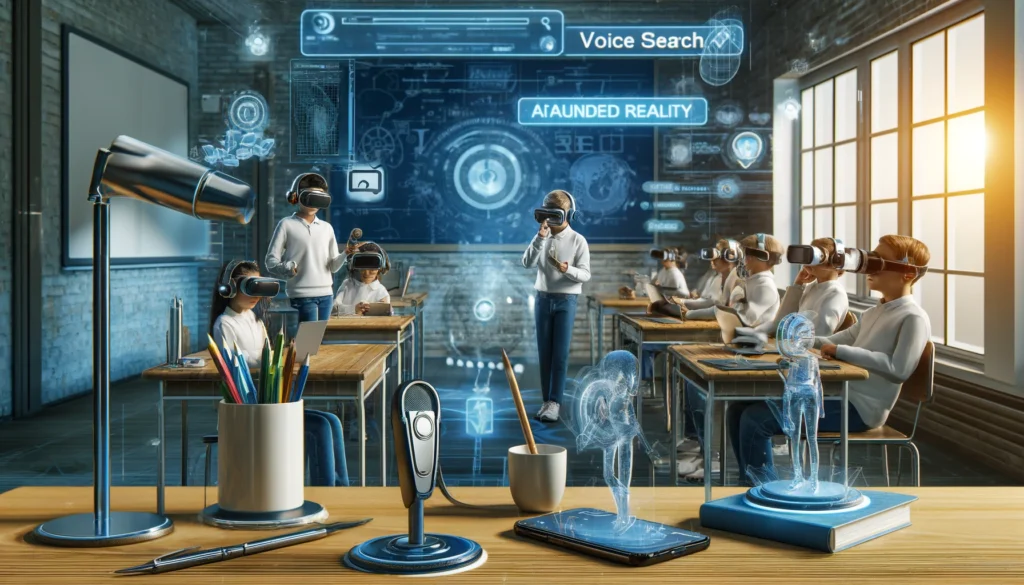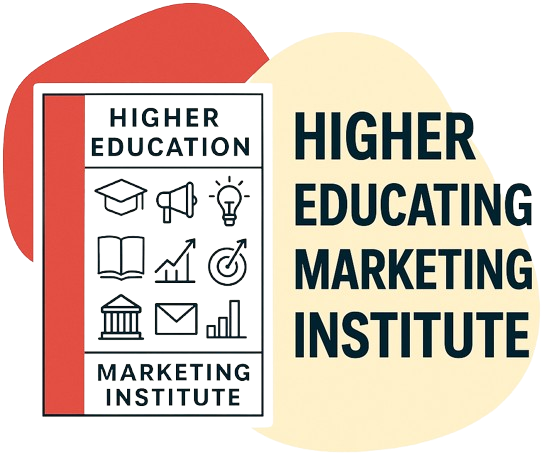Common Themes:
- Emphasis on Digital and Technology Integration: All articles discuss leveraging digital platforms and technology, like AI, social media, and multimedia content, to enhance engagement and effectiveness.
- Engagement and Personalization: A focus on creating more engaging, personalized experiences tailored to specific audiences (Gen Z, parents, students) using various strategies, including storytelling, user-generated content, and interactive elements.
- Involvement and Community Building: Each piece highlights the importance of building community or relationships, whether through involving students in content creation, highlighting real student and faculty experiences, or improving communication with AI tools.
- Strategic Adaptations for Current Trends: Articles suggest adapting to current trends such as the preferences of Gen Z, advancements in AI, and the changing landscape of SEO.
Surprising Points:
- Use of Immersive Technologies: The suggestion to use virtual reality (VR) and augmented reality (AR) in higher education marketing for Gen Z is a particularly innovative approach.
- AI in SEO for Schools: The detailed discussion on the impact of AI on SEO strategies specifically for schools, including the optimization for voice searches and mobile devices, is notably specialized.
- Comprehensive Engagement Through Newsletters: The extensive ideas for enhancing K-12 school newsletters through multimedia and interactive elements, beyond traditional content, suggest a push towards more dynamic forms of communication.

Targeting Gen Z: A Marketing Guide For Higher Ed
unincorporated
https://blog.unincorporated.com/targeting-gen-z-marketing-guide-higher-ed
Synopsis:
- This article is a marketing guide specifically catered towards higher education institutions targeting Gen Z.
- Gen Z includes individuals born between 1997 and 2012, making them the latest generation entering college.
- The article explores the characteristics, behaviors, and preferences of Gen Z, emphasizing the importance of adapting marketing strategies accordingly.
- Discusses the impact of technology on Gen Z’s lives, including their inclination towards digital platforms, social media, and mobile devices.
- Highlights the need for personalized and authentic content to resonate with Gen Z, focusing on storytelling and showcasing real student experiences.
- Offers practical tips for higher education marketers, such as leveraging influencers, engaging in user-generated content, utilizing virtual reality and augmented reality experiences, and embracing data-driven strategies.
- The author emphasizes the importance of understanding Gen Z’s diverse backgrounds, values, and interests, and tailoring marketing efforts to appeal to their unique perspectives.
- Provides additional resources and references for further reading on Gen Z marketing.
Key Takeaways:
- Higher education institutions should customize their marketing strategies to appeal to Gen Z students, considering their preferences for digital platforms, authenticity, and personalized experiences.
- Storytelling and showcasing real-life student experiences can be an effective way to engage Gen Z.
- Leveraging influencers, user-generated content, and immersive technologies can enhance marketing campaigns.
- Understanding the diverse backgrounds and values of Gen Z is essential for effective marketing.
🎓🎯 Attract Gen Z with updated marketing strategies! 📱💡#GenZ #HigherEdMarketing #DigitalInfluence
Tweet

Unique School Newsletter Ideas for Enhancing K-12 School Engagement
Higher Education Marketing
- Background: Newsletters are a valuable tool for communication and engagement in K-12 schools.
- Unique position by the author: The author provides unique and creative ideas for making school newsletters more engaging and effective.
- Synopsis:
- Introduction to the importance of school newsletters in fostering parent and student engagement.
- The author suggests various unique ideas to enhance school newsletters, such as:
- Including student-created content, like artwork or writing pieces.
- Featuring staff and teacher spotlights to promote a sense of community.
- Incorporating interactive elements, such as puzzles or quizzes.
- Sharing success stories and achievements of students and faculty.
- Providing important updates on upcoming events and activities.
- The author emphasizes the importance of maintaining a consistent design and tone throughout the newsletter.
- The use of multimedia content, such as videos or podcasts, is suggested for a more dynamic and engaging newsletter.
- A section is dedicated to highlighting the benefits of using technology platforms to create and distribute newsletters.
- The author suggests involving students in the newsletter creation process to foster their sense of ownership and engagement.
- The conclusion reiterates the importance of an engaging and informative school newsletter in building strong relationships with parents and students.
- Takeaways:
- School newsletters are essential for fostering engagement and communication in K-12 schools.
- Creative ideas like student-created content and interactive elements can make newsletters more engaging.
- Consistency in design and tone is crucial for maintaining a professional and cohesive newsletter.
- Multimedia content and technology platforms can enhance the effectiveness and engagement of newsletters.
- Involving students in the newsletter creation process fosters their sense of ownership and engagement.
⭐ Boost K-12 newsletters! 📰🤩 Add creativity, interactivity, and multimedia. #EducationEngagement #SchoolCommunication #NewsletterIdeas
Tweet

How AI is Impacting SEO for Schools — Little Foxes Marketing | Digital Marketing for Education
Little Foxes Marketing
https://www.littlefoxesmarketing.com/blog/the-current-state-of-ai-and-seo-for-schools
Synopsis:
- The article discusses the current state of artificial intelligence (AI) and search engine optimization (SEO) for schools.
- It explores the impact of AI on SEO strategies and how schools can leverage AI to improve their online presence.
- The author emphasizes the importance of optimizing school websites for voice search and mobile devices.
- The article highlights the role of AI in enhancing personalized user experiences and improving website performance.
- It provides tips on using AI-powered chatbots for effective communication with parents and students.
- The author also mentions the significance of content creation and social media marketing in boosting SEO efforts for schools.
- Background resources cited in the article include studies from HubSpot, Google, and Search Engine Journal.
Noteworthy positions taken by the author:
- AI has become an essential tool in SEO strategies for schools.
- Optimizing websites for voice search and mobile devices is crucial.
- AI-powered chatbots can enhance communication with parents and students.
- Content creation and social media marketing are vital for improving SEO.
Summary with takeaways:
- Artificial intelligence (AI) is transforming the way schools approach search engine optimization (SEO).
- Optimizing school websites for voice search and mobile devices is becoming increasingly important.
- AI can enhance personalized user experiences and improve website performance.
- Using AI-powered chatbots can improve communication with parents and students.
- Content creation and social media marketing are essential for boosting SEO efforts for schools.
🤖💡 #AI and #SEO are reshaping school marketing with optimized sites, AI chatbots, and engaging content. 📚✨ #Education #Marketing
Tweet




